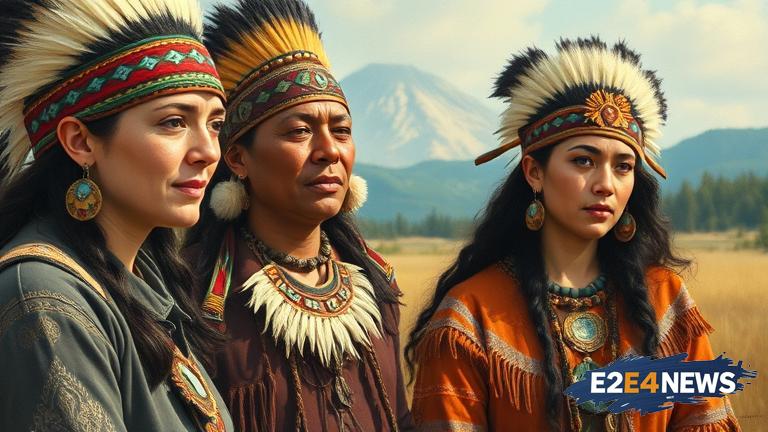A recent lawsuit has brought attention to the sensitive topic of Indigenous identity and the consequences of misrepresenting one’s cultural heritage. The woman at the center of the controversy claims she is protecting the identity of Indigenous people by exposing those who falsely claim to be part of the community. The four individuals being sued have been accused of misrepresenting their Indigenous status, which has sparked a heated debate on the importance of verifying one’s cultural background. The woman argues that allowing individuals to falsely claim Indigenous status undermines the experiences and struggles of those who are genuinely part of the community. She believes that it is essential to protect the identity and cultural heritage of Indigenous people, and that her actions are necessary to prevent the erosion of their rights and privileges. The lawsuit has raised questions about the criteria used to determine Indigenous status and the consequences of misrepresentation. The woman’s actions have been met with both support and criticism, with some arguing that she is taking a necessary stand against cultural appropriation, while others believe that her methods are too aggressive and damaging. The issue of Indigenous identity is complex and multifaceted, and the lawsuit has highlighted the need for a more nuanced understanding of the challenges faced by Indigenous communities. The woman’s decision to take a public stand against those she believes are misrepresenting their Indigenous status has sparked a national conversation about the importance of cultural authenticity and the need to protect Indigenous rights. The lawsuit is ongoing, and the outcome is uncertain, but it has already had a significant impact on the discussion around Indigenous identity and cultural heritage. The woman’s actions have been seen as a form of activism, with some hailing her as a hero for standing up against cultural appropriation. However, others have criticized her approach, arguing that it is divisive and damaging to the community. The debate surrounding the lawsuit has highlighted the need for greater education and awareness about Indigenous culture and the importance of respecting cultural boundaries. It has also raised questions about the role of social media in amplifying and perpetuating cultural appropriation. The woman’s use of social media to expose those she believes are misrepresenting their Indigenous status has been seen as a double-edged sword, with some arguing that it is a powerful tool for holding people accountable, while others believe that it can be used to bully and intimidate. The lawsuit has also sparked a conversation about the importance of verifying one’s cultural background and the need for greater transparency and accountability in claims of Indigenous status. The woman’s actions have been seen as a form of resistance against the erasure of Indigenous culture and the appropriation of Indigenous identity. However, the lawsuit has also raised questions about the potential consequences of her actions, including the potential for harm to the individuals being sued and the broader Indigenous community. The outcome of the lawsuit is uncertain, but it has already had a significant impact on the discussion around Indigenous identity and cultural heritage. The woman’s decision to take a public stand against those she believes are misrepresenting their Indigenous status has sparked a national conversation about the importance of cultural authenticity and the need to protect Indigenous rights. The lawsuit has highlighted the need for greater education and awareness about Indigenous culture and the importance of respecting cultural boundaries. It has also raised questions about the role of social media in amplifying and perpetuating cultural appropriation. The woman’s use of social media to expose those she believes are misrepresenting their Indigenous status has been seen as a powerful tool for holding people accountable, but also as a potential source of harm and intimidation. The lawsuit is a complex and multifaceted issue, and the outcome is uncertain, but it has already had a significant impact on the discussion around Indigenous identity and cultural heritage.
